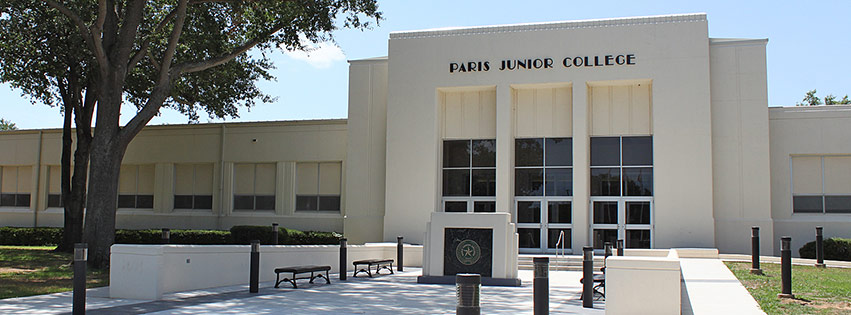PJC-Sulphur Springs Center
Public Information Services
PJC has significant positive economic impact on region
A recent economic impact study done by Emsi based on 2018-2019 fiscal year data shows the value of Paris Junior College and demonstrates how integral PJC is to the regional economy. PJC creates a significant positive impact on the business community and generates a return on investment to its major stakeholder groups – students, taxpayers, and society.
“PJC leadership understands the importance of the college to the area we serve and periodically have an economic impact survey completed to evaluate our continued value and payback to the area we serve,” said PJC President Dr. Pam Anglin.
The college plays a key role in helping students increase their employability and achieve their individual potential. The college draws students to the region, generating new dollars, and provides those students with the education and training they need for prosperous careers.
The college also supports a variety of industries, serves regional businesses, and benefits the society as a whole through expanded economy and improved quality of life. State and local government benefits from increased tax revenues and public sector savings, as well as the economic impacts PJC has on the business community and benefits generated for students, taxpayers, and society.
The study involved two parts, an economic analysis that measures how an institution affects the local economy, and an investment analysis comparing costs and benefits to determine the return on investment.
The Paris Junior College service area included in the study is Delta, Hopkins, Hunt, Lamar, and Red River counties. The average earnings by educational level for those with an associate degree is $34,200.
In FY 2018-2019, PJC served 7,204 credit students and 1,040 non-credit students. There are 424 employees for a payroll of $16.1 million. Twenty-three percent of students come from outside of the region, and all students bring tuition revenue totaling $7.1 million.
The college adds $123.6 million in total income added to the region and represents 1.4 percent of the region’s GRP. There are 2,339 total jobs supported in the region by the college, or 1 out of 52 jobs. The region has $9.1 billion total gross regional product (GRP), and 121,810 jobs.
The student spending in FY2018-19 indicated expenditures of relocated and retained students added $10.4 million to the PJC Service Region economy.
The alumni impact (higher alumni earnings and increased business profit plus ripple effects) adds $93.6 million to the region, or 1,613 jobs supported in the region.
From a student perspective, the investment analysis shows a $191.6 million benefit in higher future earnings, $31.2 million in cost of tuition, supplies and opportunity cost, a benefit-cost ratio of 6.1 and a 19.8 percent return.
Taxpayers have a $53.4 million benefit from future tax revenue and government savings from $12.1 million in cost, a benefit/cost ratio of 4.4 and a rate of return of 10.5 percent.
Society receives a benefit of $773.6 million in future earnings, tax revenue, and private savings, with all college and student costs totalling $52.2 million, for a benefit cost ratio of 14.8.
The results of the study demonstrate that PJC creates value from multiple perspectives. The college benefits regional businesses by increasing consumer spending in the region and supplying a steady flow of qualified, trained workers to the workforce.
PJC enriches the lives of students by raising their lifetime earnings and helping them achieve their individual potential. The college benefits state and local taxpayers through increased tax receipts and a reduced demand for government-supported social services.
Finally, PJC benefits society as a whole in Texas by creating a more prosperous economy and generating a variety of savings through the improved lifestyles of students.
Data and assumptions used in the study were based on several sources, including the FY 2018-19 academic and financial reports from PJC, industry and employment data from the U.S. Bureau of Labor Statistics and U.S. Census Bureau and a variety of studies and surveys relating education to social behavior.

Paris Junior College — located in Paris, Texas, about 100 miles northeast of Dallas — has been a part of the Lamar County community since 1924.
Paris Junior College offers Associate in Arts, Associate in Science and Associate in Applied Science degrees, as well as Certificates of Proficiency in technical/workforce fields. The college has expanded its academic curriculum through the years to encourage associate degree and university transfer candidates. Since establishing its first vocational program — jewelry and watchmaking in 1942 — the college has been aggressive in adding technical/workforce programs that will benefit students entering the workforce.
The campus of 54 tree-shaded acres includes 20 major buildings and residence halls and provides students a unique and pleasant environment for learning.
Paris Junior College also operates centers in Sulphur Springs, Texas, and in Greenville, Texas.
Vision
To be the educational provider of choice for the region.
Mission
Paris Junior College is a comprehensive community college serving the region’s educational and training needs while strengthening the economic, social and cultural life of our diverse community.







